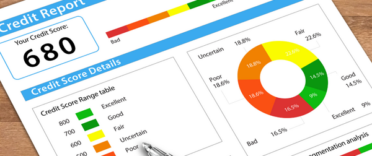Episode 335 - On this week's podcast I explain how you can get the equivalent of a £30,000 a year retirement income by saving as little as £80 a month. I also discuss what you should do (and your legal obligations) if you accidentally transfer money to the wrong bank account or receive money you weren't expecting, be it from a stranger or an employer. Finally, I discuss when interest rates are likely to rise.
Join the MTTM Community group, a friendly community that allows like-minded listeners to ask questions and chat.
You can also listen to other episodes and subscribe to the show by searching 'Money to the Masses' on Spotify or by using the following links:
Abridged transcript - Episode 335
How to get a £30k pension for £80 a month
Damien 03:17
In this piece I explain how you can get the equivalent of a £30,000 pension when you retire, taking everything into account including your state pension, possible growth and even inflation. Check out the full article via the link above for a complete run down or listen to the podcast from 3 minutes and 17 secs.
Receiving and paying money into the wrong bank account
Andy 12:55
So Damien, what happens when you receive a payment from someone into your bank? How do you get it back to them? Are you obliged to send it back to them and similarly, if you make payments elsewhere and make a mistake, what can you do about it?
Damien 13:12
This piece is related to what happens if you put money in the wrong account. Interestingly, there is now a code of best practice on misdirected payments and it outlines how banks should act in the unfortunate event that you send money to the wrong account. One of the things I have to stress is that there is now a service called ‘confirmation of payee’. It is where a bank checks that the name on the receiving account matches the name that was entered by the payee. Impressively, 90% of bank transfers that are made are covered by that service now so the chances of mistakes happening are starting to reduce.
However, if you do accidentally send money to the wrong bank account then you need to let your bank or building society know straight away and they should take action within two working days under the misdirected payments code. Iin most instances, the bank should be able to recover the money for you and that will be the end of the issue. Of course, if the bank details were incorrect and the account didn't actually exist, then the money would just bounce back, so you wouldn't have a problem. But, if it was a valid person, then the money could enter their account. As I mentioned, you should be able to get the money back if you contact the bank quickly, but what happens if you can't get the money back?
If your bank can't claim the funds straight away, it could be because the person spent it or they're disputing it. The bank will investigate and you should be told the outcome within 15 business days. If the funds can't be recovered, then the bank should give you clear and accurate information about what options are available to you. These can include taking out court action against the recipient.
Tips to avoid sending money to the wrong account
Always double-check the details before you send that money over. Try sending a smaller amount, perhaps £1 and then see if the money gets cleared. When the person you intended to get the money confirms they've received it, you can proceed and send a larger amount.
There are times where despite the confirmation of pay service, and the best practice of misdirected payments, where things can fall between the cracks. There was an interesting article in The Guardian (link below) where this did happen. Somebody was remortgaging and when she completed the forms, she accidentally supplied her son's bank details. Even though the name didn't match, the payment went through to her son. Their relationship must have been strained because he kept the money and went on to spend it and she ended up taking him to court. So that's an example of what can happen if somebody doesn't return the money. The issue is that the confirmation of pay service doesn't cover circumstances where the customer isn’t present and by that I mean when you fill out paperwork. Checks do not occur as it doesn't fall under the remit of the confirmation of pay service. Additionally, as part of anti money laundering regulations, recipient banks usually query large transactions, but that only applies to faster payments. It just goes to show that if you're filling out forms with bank details, you need to be doubly sure that you put in the correct details because no one is going to check it.
Can banks take the money off of you?
There's a misconception that banks can't take the money back off of you if you receive money by accident. That's not true and you can actually get into trouble for retaining wrongful credit under the theft act of 1968. There are some instances where a customer may be able to claim that they have ‘altered their position’ and so they wouldn’t necessarily get into trouble. For example, if they were expecting a similar sum of money to hit their account and they hadn’t checked the source of the funds. So there are obscure rules, but ultimately, you are on the hook for the money, so don't think you can just go and spend it and certainly never move it to another account.
What about if your employer pays you too much?
So what happens if your employer pays you too much? Employers can legally recover an overpayment from the employee by deducting the overpaid amount from future wages. What happens if the person has left? It will all depend on what was written in the original contract of employment and there are instances where they may not have to pay it back. Check out the link below for more information if you are interested to learn more. What happens if you are overpaid as a freelancer? Again, that is something they can't take the money back off you, but they may be able to allocate it as an overpayment as a credit on the next invoice.
Don't think if you receive money into your account, that you've won the lottery and it's free money. The likelihood is that you are going to have to give it back.
What is going to happen to interest rates?
Andy 21:26
Moving on to the final piece of the podcast and we are talking about interest rates. Damien, you've got a short piece on this.
Damien 21:33
People always want to know whether to fix or get a tracker and so a lot of that is based upon what interest rates are going to do and whether Bank of England is going to increase interest rates. Obviously, a hot topic is inflation at the moment, and people are talking about inflation going up and if people remember from past podcasts, when inflation goes up, interest rates tend to be increased to quell that inflation. Similarly, if inflation is falling, then you know that to try and stimulate the economy, they will cut interest rates.
Interest rates are at a historic low at 0.10% point 1%. Obviously, I don't know when interest rates will go up, but the money markets are having to make assumptions of what future interest rates are going to be. So you can use that information. The link posted below provided by the Bank of England website, looks at yield curves. It can effectively be used to predict where the market thinks interest rates will be in 1, 2, 3, 4 or 5 years time and you can also see how those expectations and predictions are changing. Looking now, the market is predicting that interest rates will rise probably by the first quarter of 2022, so not too far in the too distant future. However, they are not pricing in a huge jump, probably something like 0.25%. In fact, they don't actually think that interest rates would even get above 0.70% in the next 5 years. It is important to remember that it is just a guage and we could suddenly have some economic data that shifts all of the expectations in the market. So you can take that information and use it as you wish. But you have to understand that is not a certainty or any guarantee at all.
Andy 23:55
We do hear this all of the time though. We hear that inflation is going to soar, so interest rates have got to go up, but they never seem to. So what's different?
Damien 24:03
It's a good question. After the financial crisis, everyone kept talking about interest rates eventually going up. Quite simply, if you use quantitative easing but continue to keep interest rates low, there's more money chasing a limited supply of goods, then that means the prices start to go up. That's just kind of logical, isn't it? That's what people were thinking would happen, but of course, it hasn't.
If you take the last 12 years or so as a guide, the likelihood of inflation suddenly spiking and become ingrained, you probably would argue doesn't seem that likely. So it's a good question, we do keep hearing it and I don't know there's any certainty that we are going to see a particular spike in inflation. Going back to the markets and what they're pricing in, they certainly aren't thinking that we're going to have a spike in inflation. So we might have a temporary spike, but they're not pricing in that we are going to have a situation where it proves sticky. They are, if anything, thinking that the economy will still need to have interest rates very low, and it will be difficult for the Bank of England to lift them because of the impact on economic growth because it would technically start to slow it down. It would mean consumers would end up having to tighten their purse strings etc. So it is a good question, the markets aren't expecting inflation to soar, but then again, they could be wrong.
Resources:
- How to get a £30,000 a year pension by saving just £55 a month
- I sent a £40,000 loan to my son by mistake and he spent it
- I've been overpaid what should I do?
- Bank of England latest yield curve data



